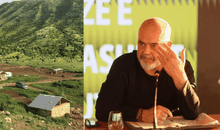
 Flash News
Flash News
Ceno Klosi with over 800 stolen votes, Balluku finds the reason is the tiredness of the counters
"Fast & Furious" in the former Block, police chase an Audi Q8, 4 cars collide
Car hits two tourists on a motorcycle in Fushe Arrëz, one of them dies
Serious accident in Thumanë, one dead, 3 injured
Durrës Court suspends the director of Pre-University Education from duty
'Memories don't go down the drain': A village in Mat resists the wave of hydroelectric power plants
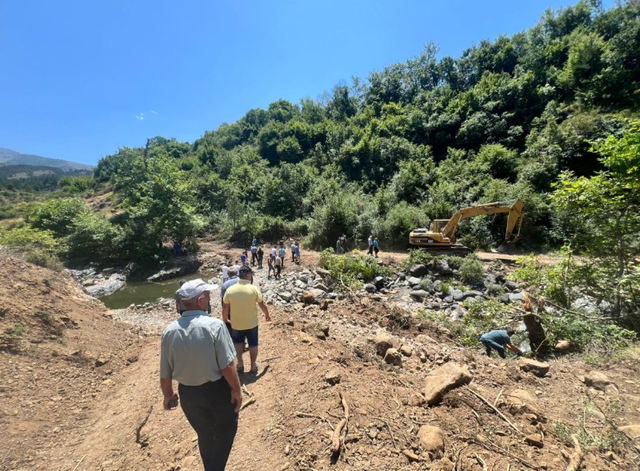
On a hot morning in mid-June, the silence in the hills of the village of Kurdari was interrupted by the dry metallic noise of an excavator that appeared in the wild bed of the Lusa River, one of the tributaries of the Mat.
The machinery and workers were brought in by the company 'Global Interprise Group' to begin digging a canal - approximately 4.4 kilometers long, where a pipeline will be laid that aims to divert the flow of the river - the first step for the construction of the Doma hydroelectric power plant.
But the villagers, who have been opposing the construction of the hydroelectric power plant for years – part of three planned hydroelectric power plants on the Lusa River – were determined not to allow the work to begin.
A dozen men gathered and stood up to the heavy machinery by creating a barricade with their bodies, while the younger ones filmed the confrontation to distribute to the media.
“These HPPs serve no one, except for a few special pockets, in politics, but also close to it,” vented Ilirian Çeliku, an environmental engineer by profession, as he recalls how during the summer, when they were children, they would beat the heat by bathing in the river water. “The Lusa River in Kurdari is, so to speak, both our identity and our memories,” he added.
The residents' opposition to the project is not just a matter of nostalgia. Agriculture is the main economic activity of the area – which is considered the 'breadbasket' of the Mati Valley. Many of the local farmers fear that the construction of the HPP could affect their supply of water for irrigation.
"They want to take away even that drop of water from us," Xhevahir Perlati, who has returned to the village after several years of emigration to England, tells me.
"We are staying here for that water, this nature and agriculture," he added.
Unlike the residents, the company developing the energy project declares that the construction of the HPP does not harm the community, while emphasizing that it has secured all the necessary permits required by law.
“For this investment, our company has followed legal procedures since 2017 until today,” Ashim Doma, administrator and shareholder of the company “Global Enterprise Group,” told BIRN over the phone.
"We have renewed all documents and obtained all relevant permits," he stressed, adding: "Anyone who thinks there have been violations should contact the institutions."
The river is gone, life is gone.
This is not the first time that the village of Kurdari has attracted media attention. Two more hydroelectric power plants are planned to be built on the riverbed by the company "Idrolusa" sh.pk. In May 2022, residents evicted the representative of this company in protest, expressing their deep dissatisfaction during a public hearing.
Bar-kafeja e vogël e Shkëlqim Kadriut në qendër të fshatit, shërben jo vetëm si pikë takimi për banorët, por edhe si shtab emergjence për organizimin e rezistencës kundër HEC-eve. Mes tymit të duhanit, banorët e mbledhur kujtojnë se idetë fillestare për ndërtimin e HEC-e në lumin e Lusës shkojnë pas gati dy dekada.
“Jemi mbledhur në mënyrë të vazhdueshme,” më thotë Shkëlqimi, ndërsa rikujton aktet e vazhdueshme të rezistencës dhe protestat ndaj punimeve. “I gjithë fshati është afro 600 ose 700 familje,” tregon ai, përpara se të shtojë se “thuajse 90% janë kundra ndërtimit të HEC-eve.”
Edhe pse shumë prej banorëve kanë emigruar jashtë vendit, një pjesë e madhe e tyre vazhdojnë ta ruajnë lidhjen me vendlindjen, ku disa kanë investuar për shtëpi pushimi. Fabiol Zeneli ishte vetëm 13 vjeç kur u largua nga fshati për në Angli. Atje u arsimua, nisi punën si inxhinier dhe themeloi një kompani private në fushën e ndërtimit. Pas afro 25 vitesh, ai u rikthye në banesën e gjyshërve të tij, ku nisi një rikonstruksion të plotë për ta kthyer kullën në identitet.
“Gjej qetësi këtu,” me thotë Fabioli. “Fëmijët, pavarësisht se kanë lindur në Angli, kënaqen gjithashtu kur vijnë këtu” tregon ai.
Për Fabiolin, ideja e ndërtimit të HEC-eve në fshat është e paimagjinueshme.
“Gjuetia e peshkut, larja gjatë verës – nuk mund të futen në tuba,” tha Fabioli. “Ne kujtimet i kemi aty,” thekso ai, ndërsa shtoi se “po iku lumi, ikën jeta.”
Dëgjesa të kontestuara
Ashim Doma, administratori i kompanisë ‘Global Interprise Group’ – e cila qëndron pas projektit të HEC-it ‘Doma’, insiston se ndërtimi i hidrocentralit është një investim strategjik, ligjërisht i rregulluar, i planifikuar prej vitesh dhe që nuk sjell asnjë dëm për komunitetin.
Ai thekson se janë zhvilluar disa dëgjesa publike për projektin ndër vite dhe se pjesëmarrja në to ka qenë e hapur, ndonëse nuk mban mend numra konkretë.
“Në momentin që paraqet dokumentacionin për Vlerësimin e Ndikimit në Mjedis (VNM), një ndër dokumentet është njoftimi i publikut,” tha ai, ndërsa theksoi se në dëgjesa ka marrë pjesë “kush ka qenë i interesuar.”
“Aty kanë qenë ndoshta 20 apo 25 veta, por kjo është bërë më shumë se një herë, ndoshta 3 apo 4 herë që nga 2017-ta,” tha sipërmarrësi. “Ne nuk i marrim njerëzit me zor,” shtoi ai.
Por banorët e kontestojnë pjesëmarrjen në dëgjesat publike që deklaron kompania. Ato pretendojnë se një pjesë e firmave në listat e pjesëmarrjes janë falsifikuar.
Megjithatë, Ashim Doma mbetet i vendosur për ndërtimin e hidrocentralit, ndërsa thekson se gjurma e tij ndodhet afro 300 metra poshtë fshatit dhe nuk prek asnjë banor drejtpërdrejtë, “as me zhurmë, as me ndotje, as me kufizim të burimeve”.
“Unë nuk kam asnjë lidhje me banorët e Kurdarit,” tha ai. “Jemi shumë larg tyre fizikisht.”
Doma lë të kuptohet se, nëse banorët këmbëngulin në bllokimin e punimeve, ai do t’u drejtohet institucioneve të rendit. “Unë do të vazhdoj punimet”, theksoi sipërmarrësi.
Interesa politike?
In Kurdari, speculation that people with political power are behind the HPP projects has become a legend. Like many things in Albania, the confrontation between the residents of Kurdari and the HPPs seems to have a political background.
The village is part of the Suç administrative unit, in the Klos municipality, which was once a right-wing stronghold. But in the parliamentary elections on May 11, the Socialist Party managed to win a landslide victory, securing 60% of the vote.
Many of them believe that the start of work on the Doma hydroelectric power plant, right after the parliamentary elections, is no coincidence. The administrator of the construction company, Ashim Doma, is a local figure closely linked to the Socialist Party. He was a candidate for deputy in the 2013 elections on the SP list in the Dibra district.
Some residents think that the former mayor of Mat and the new SP MP, Agron Malaj, are behind the project.
Asked about the rumored connections with the MP, Ashim Doma denies any political involvement and defines the investment as a "family business."
“I don’t need to have a political background,” he said, claiming that “most of the protesters are not from the village at all.”
"They say we take drinking or irrigation water, but these are fabrications," Doma added.
After the media coverage of the clash with the company, the elected SP MP, Agron Malaj, had a meeting with the residents of Kurdaria on the afternoon of June 29.
Malaj seemed determined to dismiss rumors that he was behind the project, adding that any work that is built without public approval and hearings is "invalid."
“This area is a working area, this area lives on this water,” Malaj said. “Life cannot be compromised for interests that are not shared,” he concluded./ Monitor
Latest news





Lufta në Gaza/ Pse Netanyahu do vetëm një armëpushim 60-ditor, jo të përhershëm?
2025-07-02 21:56:08
US suspends some military aid to Ukraine
2025-07-02 21:40:55



Methadone shortage, users return to heroin: We steal to buy it
2025-07-02 20:57:35
Government enters oil market, Rama: New price for consumers
2025-07-02 20:43:30
WHO calls for 50% price hike for tobacco, alcohol and sugary drinks
2025-07-02 20:41:53






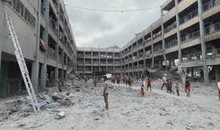
Israel agrees to 60-day ceasefire in Gaza, but many unanswered questions remain
2025-07-02 18:35:27
The weather in Germany is going "crazy", temperatures reach 40°C
2025-07-02 18:22:21

"Fast & Furious" in the former Block, police chase an Audi Q8, 4 cars collide
2025-07-02 17:59:25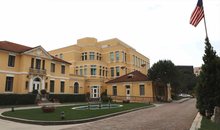
"Birth on a tourist visa? US Embassy warns Albanians: This is prohibited!"
2025-07-02 17:48:16


BIRN: Fier recount reveals vote trafficking within open political party lists
2025-07-02 16:57:19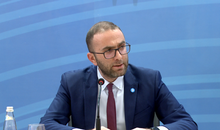

CEO and former director of 'Bankers Petroleum' arrested in Fier
2025-07-02 16:40:42
Car hits two tourists on a motorcycle in Fushe Arrëz, one of them dies
2025-07-02 16:33:23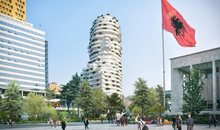


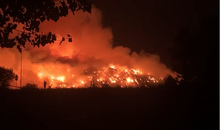
Fire at the Elbasan Incinerator Landfill, Prosecution Launches Investigations
2025-07-02 15:34:54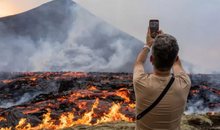
What you need to know if you travel to a country with active volcanoes
2025-07-02 15:33:03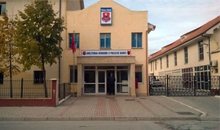


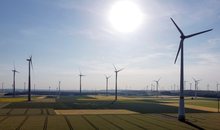
EU proposes 90% reduction in greenhouse gases by 2040
2025-07-02 14:50:23
Europe is burning from the heat / Italy and France are on maximum alert
2025-07-02 14:36:52

Moscow's contradictory statements: Is the friendship with Vučić breaking down?
2025-07-02 14:21:05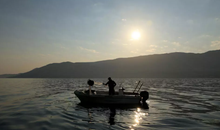
'I lost my battle': Sea warming is killing fishing in Albania
2025-07-02 14:08:35
Sekretet kimike që ndihmojnë në mbajtjen e mjaltit të freskët për kaq gjatë
2025-07-02 14:01:26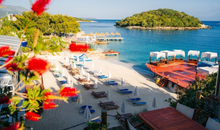
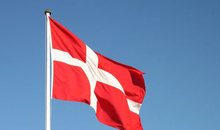
Denmark makes historic decision to make military service mandatory for women
2025-07-02 13:44:33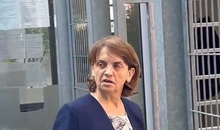
The appeal of the GJKKO leaves former judge Pajtime Fetahu in prison
2025-07-02 13:30:20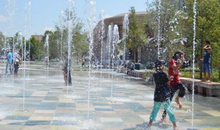
Productivity losses could reduce GDP by 1.3% as a result of extreme heat
2025-07-02 13:21:04
He abused his minor daughter, Zamir Meta is left in prison
2025-07-02 13:04:04
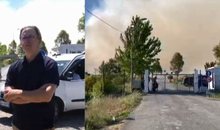
Waste burning in Elbasan, Alizoti: They are poisoning people and stealing money
2025-07-02 12:48:39
Civil disobedience continues in Serbia, dozens of people detained
2025-07-02 12:40:32
Rama's government was born under the sign of garbage and will end like this
2025-07-02 12:28:09
Water prices increase in the municipalities of the Elbasan region
2025-07-02 12:13:38
Civil disobedience continues in Serbia, what is happening in Belgrade?
2025-07-02 12:07:44
Serious accident in Thumanë, one dead, 3 injured
2025-07-02 11:54:42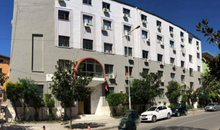
Durrës Court suspends the director of Pre-University Education from duty
2025-07-02 11:49:27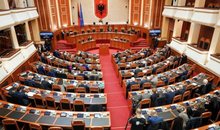
Plenary session on Thursday, what is expected to be discussed
2025-07-02 11:36:43
Europe is burning from heat waves/ What is the 'thermal dome' phenomenon?
2025-07-02 11:26:25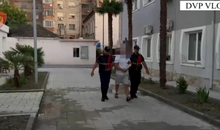
Wanted by Italy for murder, 45-year-old arrested in Vlora
2025-07-02 11:19:31
Fire situation, 28 fires reported in 24 hours, 2 still active
2025-07-02 11:13:20
"Buka" file, preliminary hearing for Ahmetaj postponed to July 17
2025-07-02 11:03:30
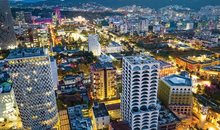

Baçi: Belinda Balluku and Ceno Klosi, the most dangerous "gangs" in Fier
2025-07-02 10:32:09
Zamir Meta, suspected of sexually abusing his daughter, arrives in court
2025-07-02 10:21:33

Trump: Israel has agreed to a 60-day ceasefire in Gaza
2025-07-02 10:01:55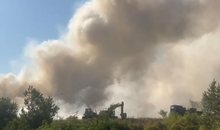
Fire continues at Elbasan landfill
2025-07-02 09:51:13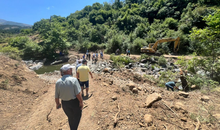

Dates to note during July, important events will occur
2025-07-02 09:31:45
The hearing for Jorgo Goro's claim is postponed
2025-07-02 09:24:19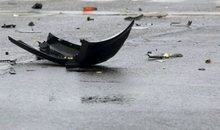

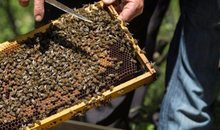

Foreign exchange, the rate at which foreign currencies are sold and bought
2025-07-02 08:42:31

52% of pensioners did not receive full pension in 2024
2025-07-02 08:27:18
Horoscope, what do the stars have in store for you today?
2025-07-02 08:13:36
Hot weather, Wednesday brings high temperatures
2025-07-02 07:59:16
Morning Post/ In 2 lines: What mattered yesterday in Albania
2025-07-02 07:46:15
Heatwave sweeps across Europe, Spain and England record hottest June ever
2025-07-01 22:57:41






Golem and Qerret without water at the peak of the tourist season
2025-07-01 21:09:32

Euractiv: Italy-Albania migrant deal faces biggest legal challenge yet
2025-07-01 20:53:38
BIRN: Brataj and Fevziu victims of a 'deepfake' on Facebook
2025-07-01 20:44:00

Vlora by-pass, work delays and cost increases
2025-07-01 20:24:29



Milan are expected to give up on the transfer of Granit Xhaka
2025-07-01 19:41:25

